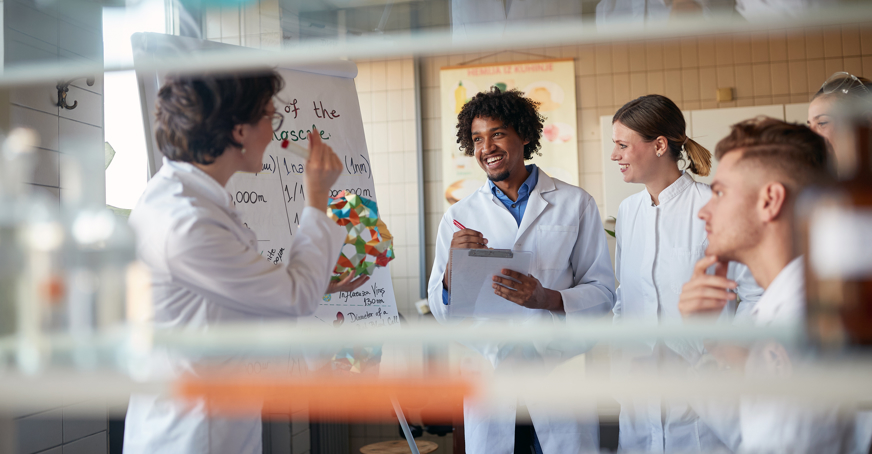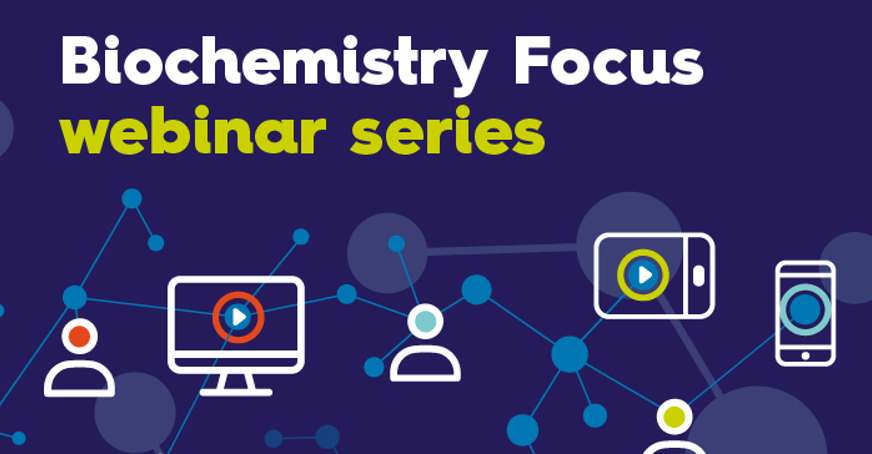
Postgraduate Studies
Following an undergraduate degree, you may decide to go on to further study. This may involve doing a Master's degree, a technical qualification or a PhD.
Below you can find out more information about a PhD and Master's degree, how to apply for one, how they are funded and where to find them.
Studying for a PhD
Studying for a PhD involves a 3–4 year programme (in the UK), where you undergo a large piece of original research that is written up as a thesis and then defended at a PhD Viva.
In the UK, PhD programmes now also include elements of training to develop your transferable skills. They are usually completed within a university, however there may be opportunities to study within other laboratories and research institutions. Some PhD programmes involve work placements outside of research such as PIPs placements.
A PhD is useful if you wish to follow a career in academic research or a research job in industry, and it also equips you with knowledge and transferable skills useful outside of research.
Applying for a PhD is similar to applying for a Master's course, where you apply directly to the university or institute.
If you have identified a research group you would particularly like to work with, you can write speculatively by sending them your CV and a letter of introduction to make you stand out in the crowd.
Make sure your application is highly targeted and refer to their publications and recent research stating how you will be able to contribute.
Most bioscience PhDs are fully funded; your funder pays your tuition fees, money for your research and a stipend to support your living costs which are tax-free.
You cannot apply directly for the money yourself and instead the funding comes with the PhD (rather like a salary). PhDs are mostly publicly funded via the various Research Councils who are responsible for co-ordinating and funding particular research areas.
If you do not have a fully funded PhD, investigate alternative options below:
- Government advice on funding postgraduate study
- Advice on funding postgraduate study from Prospects
- Scholarships for postgraduate courses
Choosing the right PhD is crucial, not only in terms of the subject choice, but also in terms of the academic supervisor and their research group.
Make sure you research these carefully before applying as you will be spending three to four years with them in a relatively close environment, so it is important that you have a rapport (you can find this out when you attend interview by asking to meet the other research group members).
Use these sites to help you find the right PhD for you:
Studying for a Master's degree
Master's degrees usually take one year full-time and allow you to specialise in a particular area.
You might specialise in areas closely related to your undergraduate degree, such as:
- Molecular Biology
- Bioinformatics
- Statistics
- Biophysics
Or you may decide to specialise in science-related or non-scientific fields, such as:
- Science writing and journalism
- Science communication
- Law
- Management
- Teacher training
Unlike an undergraduate degree, there is no central admissions system for postgraduate courses.
You can apply directly to individual universities for as many courses as you like. It is usual to apply anytime after the start of your final undergraduate year, but you can apply later. If you can self-fund and obtain a good degree, you have a good chance of being accepted onto many courses.
There are a limited number of funded studentships available for Master's courses but, in the majority of cases, students need to fund their tuition fees and also their living costs.
The tuition fees vary but are usually more expensive for international students and for research Master’s courses.
Many banks offer loans to recent graduates which have relatively low interest rates. Additionally, some universities offer bursaries to outstanding students or students on a low income. It may also be worth investigating whether there are any suitable scholarships or knowledge transfer partnerships available.
Investigate some of the options below:
- Government advice on funding postgraduate study
- Advice on funding postgraduate study from Prospects
- Scholarships for postgraduate courses
Use these websites to explore Master's courses:
- UCAS page dedicated topostgraduate study
- Directory of Master's degrees from across the world
- Tips on finding and applying for Master's and postgraduate courses from Prospects
- Master's courses abroad that are taught in English from educations.com
- Find a variety of studentships and funded opportunities at Postgraduate Studentships
Unsure of what to do next?
Use our resources to explore different career paths open to you as a bioscience graduate.
Postgraduate student support
The Biochemical Society offers a range of ways to support postgraduate students with their studies and career development, which you can explore below.
Contact us
For further information and support please get in touch with the Education department.








